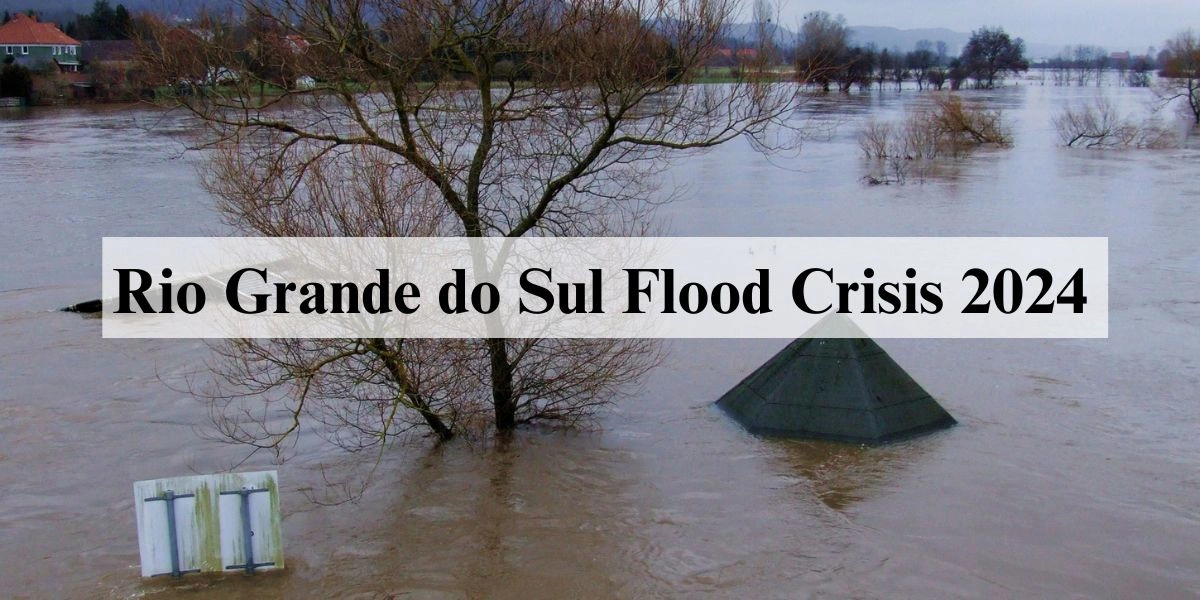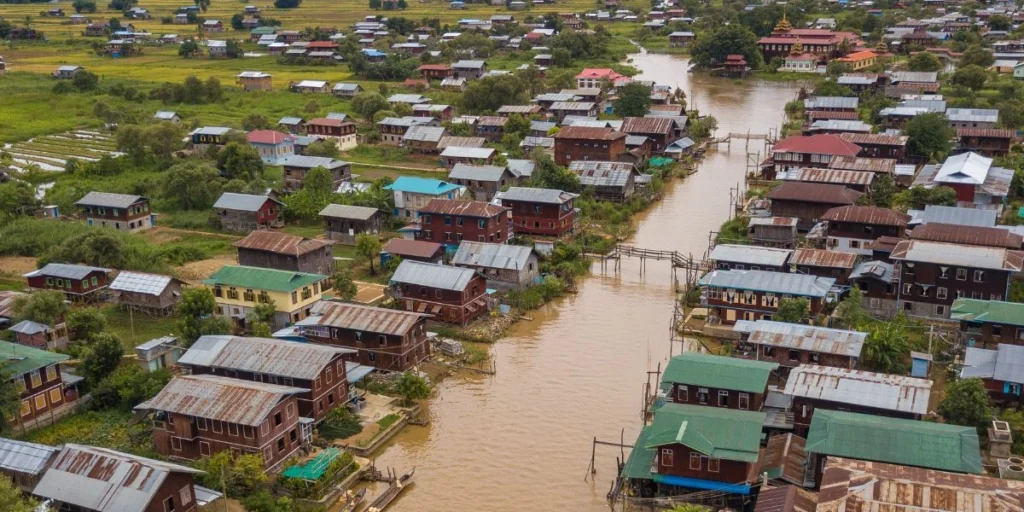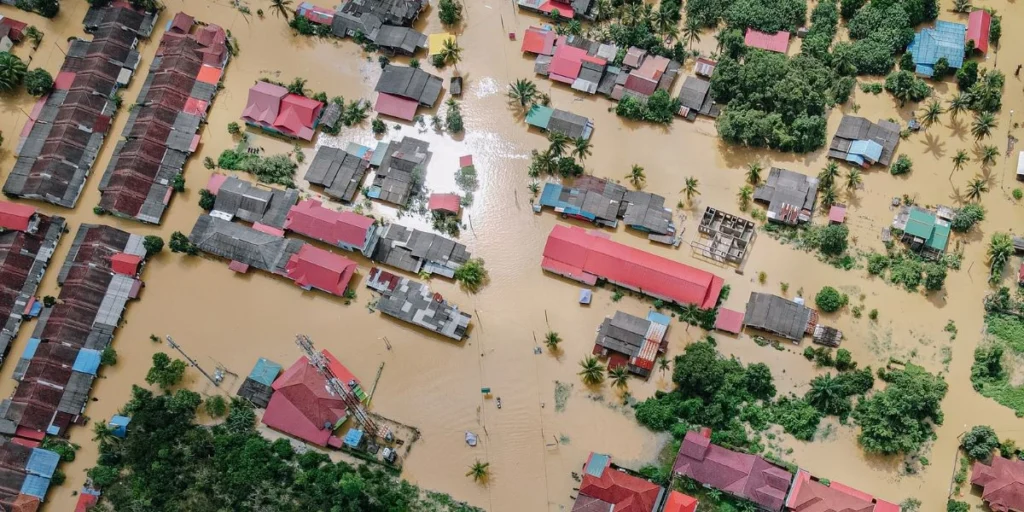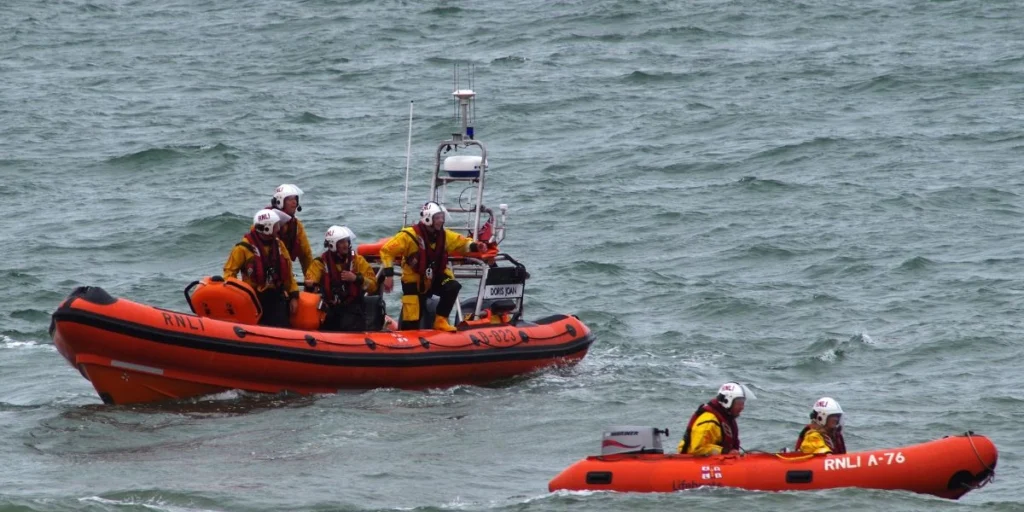
Rio Grande do Sul, Brazil, In recent days, has been engulfed in a catastrophic natural disaster as relentless heavy rains and storms wreak havoc across the state. Since April 29, 2024, the region has been grappling with severe floods of unprecedented magnitude, leaving a trail of devastation and despair in its wake.
Read Also: Neck Fan Amazon: At Cheap Price, Limited Time Offer 2024
Table of Contents
Causes of Severe Floods in Rio Grande do Sul
The deluge of rainwater has inundated countless towns and cities, plunging them underwater and causing widespread chaos. Tragically, the toll on human life has been immense, with dozens of fatalities reported, marking this event as the deadliest flooding disaster the country has witnessed in over 80 years.
Impact of Rio Grande do Sul Floods on Communities
The impact on communities has been profound, with hundreds of thousands of residents forced to flee their homes in search of safety. At least 85 lives have been lost, and the fate of over 130 missing individuals hangs in the balance, sparking fears of further tragedy. Entire towns have been left isolated, cut off from vital supplies and assistance, exacerbating the already dire situation.
Key infrastructure has been severely compromised, with critical facilities such as the Porto Alegre airport and the Arena do Gremio stadium submerged under water and debris. The heart-wrenching sight of the city’s public market surrounded by floodwaters serves as a stark reminder of the scale of devastation wrought by the disaster.
Elon Musk Tweet on Rio Grande do Sul Flood Crisis
Given the terrible flooding in Rio Grande do Sul, @Starlink will donate 1000 terminals to emergency responders and make usage for all terminals in the region free until the region has recovered.
— Elon Musk (@elonmusk) May 9, 2024
I hope the best for the people of Brazil. pic.twitter.com/NK6kjz7Iag
He Said:
“Given the terrible flooding in Rio Grande do Sul,
@Starlink
will donate 1000 terminals to emergency responders and make usage for all terminals in the region free until the region has recovered.”
Impact of the Flood Crisis in Rio Grande do Sul

Economic Repercussions
The flood crisis has dealt a severe blow to the economy of Rio Grande do Sul, disrupting businesses, destroying infrastructure, and causing significant financial losses. Agriculture, a key sector in the state, has been particularly hard hit, with crops destroyed and livestock lost.
Social Consequences
Communities across Rio Grande do Sul have been displaced from their homes, facing hardships and uncertainty. Vulnerable populations, including the elderly, children, and low-income families, are disproportionately affected, struggling to access essential services and support.
Environmental Damage
The floodwaters have not only submerged homes and roads but also caused extensive damage to the environment. Erosion, sedimentation, and contamination of water sources pose long-term threats to ecosystems and biodiversity, requiring urgent conservation efforts.
Hydroelectric Dam Collapse: Consequences and Fallout
Adding to the catastrophe, a hydroelectric dam in southern Brazil collapsed under the relentless force of the floodwaters, unleashing a torrent of destruction in its path. The collapse claimed the lives of more than 30 individuals, while scores remain missing, further compounding the tragedy.
Power and Water Outages: Challenges Amidst Crisis
The aftermath of the floods has plunged vast swathes of the population into darkness and desperation, with approximately 500,000 people left without access to essential services such as electricity and clean water. The displacement of over 15,000 residents underscores the urgent need for humanitarian aid and relief efforts to alleviate the suffering of those affected.

Climate Change and Flooding in Rio Grande do Sul
Climate experts attribute the unprecedented severity of the floods to a rare confluence of climatic factors, including soaring temperatures, high humidity levels, and fierce winds. These conditions, exacerbated by climate change, have intensified the collision between tropical and polar air masses, creating a perfect storm of destruction in Rio Grande do Sul.
International Support for Rio Grande do Sul

Aid from Other Countries
The global community has rallied to support Rio Grande do Sul in its time of need, offering financial assistance, technical expertise, and humanitarian aid. International partnerships and collaboration facilitate the sharing of best practices, lessons learned, and resources to strengthen disaster resilience and recovery efforts.
Collaborative Efforts
Collaborative initiatives between governments, non-governmental organizations, and international agencies are essential to address the complex challenges of the flood crisis. By pooling resources, expertise, and networks, these partnerships can enhance the effectiveness and sustainability of response and recovery efforts, building resilience at the local, national, and global levels.
Conclusion
As the crisis unfolds, authorities are mobilising resources and personnel to provide assistance to affected communities and mitigate further harm. However, the road to recovery will be long and arduous, requiring collective efforts and solidarity from both local and international stakeholders.
In the face of adversity, the resilience and spirit of the people of Rio Grande do Sul shine through, inspiring hope amidst despair. As we stand in solidarity with those grappling with the aftermath of this tragedy, let us extend our support and compassion to help rebuild shattered lives and communities.
FAQs (Frequently Asked Questions)
What caused the severe floods in Rio Grande do Sul?
The floods were triggered by heavy rains and storms that inundated the region, leading to widespread flooding and devastation.
How many people have been affected by the floods?
Hundreds of thousands of residents have been displaced, with at least 85 lives lost and over 130 individuals still missing.
What infrastructure has been damaged by the floods?
Critical infrastructure, including the Porto Alegre airport, stadiums, and public markets, has been severely impacted by the floods.
What is the role of climate change in exacerbating the flooding?
Climate change has intensified the climatic conditions conducive to flooding, exacerbating the severity of the disaster.
How can I contribute to relief efforts for those affected by the floods?
Donations to reputable humanitarian organizations and volunteering with local relief efforts are meaningful ways to support those affected by the floods.
Our thoughts and prayers are with the people of Rio Grande do Sul during this challenging time. If you require further information or assistance, please do not hesitate to reach out.










